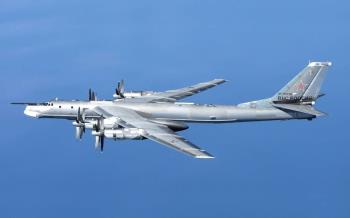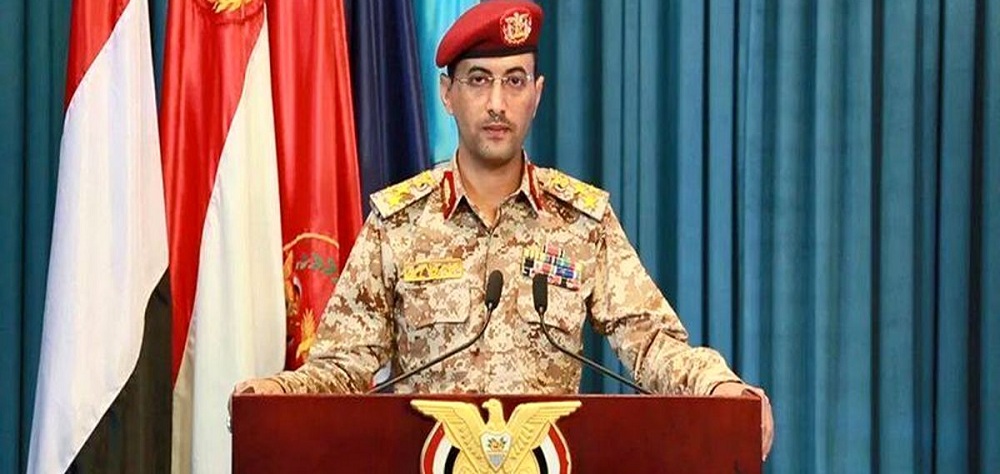Alwaght- While the recent Iran-Saudi Arabia détente agreement was expected to positively reflect on Yemen war, it seems that the Saudis are looking to the deal separate from the regional tensions, and recent warnings by Yemen’s Ansarullah Movement showed that no progress has been made in the conflict.
Yahya Saree, the spokesman to the Yemeni forces, on Sunday in comments addressing the aggression countries and their mercenaries said: “The general amnesty period announced by Ansarullah to pardon the mercenaries of the aggressors in exchange for joining Sana’a should be seized, because if the aggressor coalition commits any foolishness, there will be the possibility of surprise actions and massive attacks both in Saudi Arabia and in the UAE that will affect whole region.”
He continued: “To all those who are still in the ranks of the aggressors; the door of amnesty is still open and they should return to their cities and villages and learn from the 8-year experience of war before the door closes. The aggression is coming to an end and we in the armed forces are determined to expel each and every invader from our country with trust in God.”
Mohammad Naser al-Attefi, the defense minister in Sana’a-based National Salvation Government (NSG) a couple of days ago had warned the Saudi-led coalition that if it did not listen to the recommendations of Ansarullah leader Abdul-Malik al-Houthi about halting the attacks, lifting the blockade, and pulling out of occupied regions, it will regret it.
Reliance on domestic capabilities
Although Ansarullah officials have welcomed agreement between Iran and Saudi Arabia and hoped that it can be fruitful in the form of strengthening stability and establishing security in the region, the political developments in the region have not made the Yemenis neglect relying on their internal potentials. To this end, on the eighth anniversary of the aggression, the Yemenis held large-scale military exercises to make it clear they are ready for any scenario.
Over the past two years, Ansarullah launched missile operations on Saudi and Emirati oil facilities on the anniversary of war. Two days before Chinese-brokered Iranian agreement with Saudi Arabia, Ansarullah had warned that if negotiations with Riyadh failed, they would start a decisive battle to end the coalition operations and remove the restrictions on the border crossings controlled by Ansarullah. Therefore, everyone was waiting to see what surprises Ansarullah has for Saudi Arabia and the UAE this year on the anniversary of the war, but with the signing of the agreement between Iran and Saudi Arabia, Sana’a stopped its operations to prevent further tensions and waited to see what changes to the Saudi approach towards the war in Yemen this agreement would bring. Even the prisoner swap deal was concluded after a long time and according to the agreements between the two sides, 700 Yemeni prisoners are to be released in exchange for the release of 181 Saudi Arabia mercenaries in the coming weeks.
Despite these agreements, no progress has been made in military area, and Saudi fighter jets keep striking Yemeni positions in the ninth year, injuring and killing innocent civilians. Also border areas in Sa’ada, the cradle of Ansarullah, we’re targeted several times by Saudi missiles and artilleries. Minister of Human Rights at the NGS Ali al-Dailami, said that the crime of Saudis in the border areas happen on a daily basis and in the shadow of the silence of the international community.
“The enemy believes that it has the ability to create a new equation in the border areas through the forced relocation of the residents, while it lives in an illusion,” al-Dailami said.
This Yemeni official called on the UN to stop Saudi attacks on Yemeni border areas.
Continuation of the Saudi attacks on Yemen’s north indicate that the Saudis have not taken practical steps to end the war and continue escalatory policies. But Sana’a officials have repeatedly warned that their patience has a limit. Ansarullah has warned that it is capable of taking back the rights of Yemenis from Saudi Arabia and the UAE. It held that it is giving the aggressors a chance to withdraw from the occupied areas before it is too late, because with the start of a new round of attacks, no one will be immune to the Yemeni anger.
Ending occupation, lifting the all-out blockade, and paying salaries of state employees were Ansarullah’s conditions for ceasefire, but the Saudis have not met them so far. The continuation of Saudi attacks on the northern regions of Yemen shows that despite the tacit agreement of Saudi Arabia to end the war in Yemen, Riyadh presses ahead with the same policy with no prospects of a shift.
Over the past year, Yemen’s army and popular committees have made considerable missile and drone advances despite halt of the operations under the ceasefire deal. The weapons at the disposal of the Yemenis can help expel the enemies from the country. In October last year, they attacked Saudi oil tanker planned to dock in Hadhrahmaut for plundering Yemeni oil. On the opposite side, the Saudis who have felt the resolution of the Yemenis resorted to Iran to step out of self-made quagmire. A Yemeni media outlet reported that during a phone conversation with Iran’s Foreign Minister Hussein Amir-Abdollahian, Saudi Foreign Minister Faisal bin Farhan asked for Tehran mediation between Riyadh and Sana’a for de-escalation.
Though one of Iranian demands for an agreement with Saudi Arabia was end of war in Yemen, Iranian officials have emphasized that the final decision-maker in Yemen issues is Sana’a, not Tehran. Therefore, if the Saudis intend to end the war, they should sit with Ansarullah and resolve the differences, and Iran and Oman can act as mediators. Many expected that the Tehran-Riyadh agreement would immediately have a positive impact on the Yemen war, but the re-establishment of diplomatic relations between Iran and Saudi Arabia does not necessarily mean the alignment of all the policies of the two countries, and regional tensions should be considered separately from political relations.
After the Iranian-Saudi agreement and Ansarullah’s show of tolerance concerning the coalition’s violations, now the ball is in the Saudi court to decide whether it is willing to put an end to the war or it wants to continue its warmongering. But Riyadh leaders should take it into account that the Ansarullah of today is way stronger than before and in case of renewed major operations, painful consequences would await Saudi Arabia and the Emirates.



























